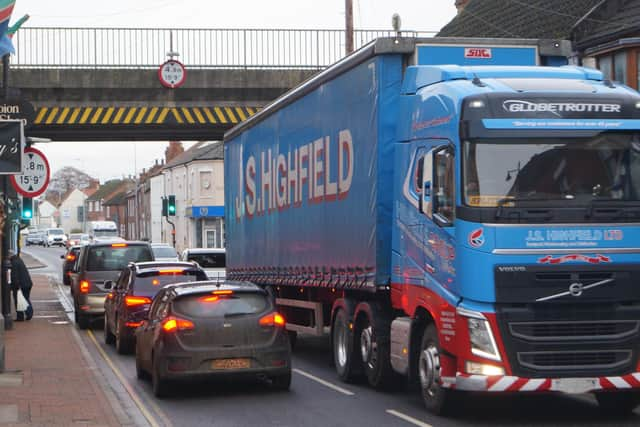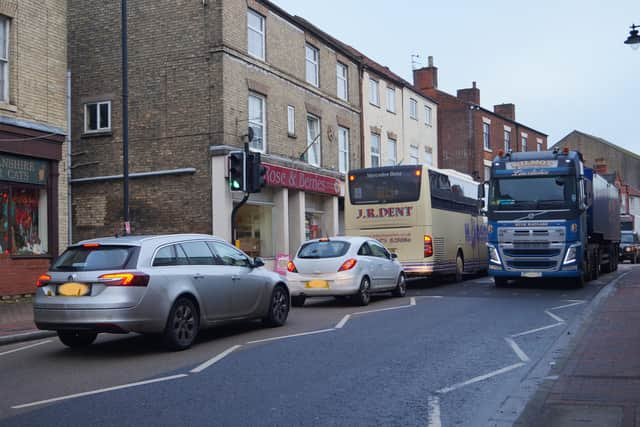Is Rasen street most polluted?
and live on Freeview channel 276
That is the view of a spokesman for the town’s evolving environmental group after reading the 2021 Air Quality Annual Report (ASR) by West Lindsey.
Monitoring sites have been set up in Market Rasen and Gainsborough, but it is Queen Street that shows the highest average reading, eight points above Gainsborough’s highest average.
Advertisement
Advertisement
The spokesman said: “We should all have access to clean air.


“While the figures show a decrease year on year, the latest figure available (2020) was of course during the pandemic, so there were far fewer vehicles on the road.
“We have three sets of traffic lights on Queen Street, so vehicles are often in queues.
“This is particularly noticeable with the large lorries that go through the town, as they block out all light to shops when they come to a halt.”
Advertisement
Advertisement
Levels of NO2 are measured by diffuser tubes and Market Rasen has four monitoring sites - Queen Street, the junction of Gallamore Lane and Caistor Road, Lammas Leas and Beechers Way.


These chosen sites have also been called in to question.
“Air pollution particularly affects children, so why are there not monitors outside our schools,” added the spokesman.
“Queen Street pavements are narrow, so the vehicles cannot be avoided.
“Are these figures acceptable? Has West Lindsey got plans for action?”
Advertisement
Advertisement
The Rasen Mail asked West Lindsey District Council for comment, but a response was not received by the time of going to press.
However, the ASR concludes pollution concentrations continue to be ‘relatively low’ and monitoring will continue ‘to ensure any concentration trends can be identified’.
The report also gives ways everyone can help reduce air pollution on a local scale.
These include using alternative modes of transport rather than the car - walking, cycling or public transport.
They also encourage people to ask their employer, school or college about developing a green travel plan.